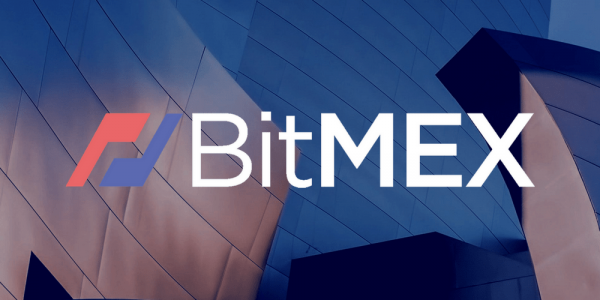Table of Contents
- Overview-FINTRAC’s latest crypto regulations
- What is Canada’s FINTRAC?
- What is the Proceeds of Crime (Money Laundering) and Terrorist Financing Act (PCMLTFA)
- FINTRAC’s 2020/2021 AML and crypto activities
- How FINTRAC aligns with the FATF’s AML/CFT policy
- FINTRAC’s regulatory virtual currency definitions
- Canada’s crypto regulation history (2014-2020)
- FINTRAC’s 2019 virtual currency (crypto) updates
- Conclusion- Sygna Bridge’s R.16 travel rule solution
Overview
The Canadian financial regulator FINTRAC has published a report that highlights regulatory changes it will implement in 2020/2021. These changes will support the combating of money laundering and terrorism funding in Canada, in accordance with global regulations and also extend to virtual currency (cryptocurrencies).
In particular, FINTRAC will prioritize in the short term the establishment of an “enhanced AML/CFT regime” for businesses dealing with virtual currencies. These latest changes can be interpreted as a response by the Canadian regulator to the Financial Action Task Force (FATF)’s recently updated Standards (June 2019), such as its industry-changing Recommendation 16.
The R.16 update mirrors the U.S. Bank Secrecy Act’s “travel rule” requirement for crypto exchanges and has an approaching deadline that requires member countries to implement by June 2020 or risk being subjected to increased monitoring by the FATF.
According to its 2019 updates, all “virtual currency dealers” must register as money service businesses (MSBs) by June 1st, 2020. Also any “reporting entity” that receives more than $10,000 Canadian dollars in virtual currency during a transaction must report it to FINTRAC.

What is FINTRAC?
The Financial Transactions and Reports Analysis Center of Canada (FINTRAC) is Canada’s official financial intelligence unit (FIU), responsible for establishing and implementing its Anti-Money Laundering (AML) and Counter-Terrorism Funding (CFT; referred to in Canada as ATF, or anti-terrorist funding) policies.
FINTRAC is the Canadian equivalent of the Financial Crimes Enforcement Network (FinCEN), the United States’ chief AML/CFT regulator. The Center acts independently of regular law enforcement and police and reports to the Minister of Finance, who is mandated by Canada’s Parliament. FINTRAC is also a member of the Egmont Group, a united collective of 164 FIUs around the world.
What is Canada’s Proceeds of Crime (Money Laundering) and Terrorist Financing Act (PCMLTFA)?
FINTRAC is mandated by Part 1 and 1.1 of the Proceeds of Crime (Money Laundering) and Terrorist Financing Act (PCMLTFA) (2000), which is the primary AML/CFT legislation in Canada.
The PCMLTFA acts as a legal framework that obligates reporting entities to create compliance programs that identify, monitor and keep records of customers, and also report suspicious transactions.
FINTRAC enforces the PCMLTFA’s requirements to ensure that reporting entities (see list here) like banks and money services businesses operating in Canada’s financial system fulfill their regulatory obligations. It also maintains a registry of money service businesses (MSBs) operating in Canada, similar to the duty FinCEN fulfills in the United States.
FINTRAC’s AML activities in 2020/2021
FINTRAC’s latest actions iterate on its substantial 2019 updates (read the virtual currency changes further below). According to FINTRAC director and CEO Nada Semaan:

“The overall legislative and policy framework must serve Canada’s interests while staying attuned to international expectations”.
FINTRAC CEO Nada Semaan
Therefore, the Center will modernize its existing AML/CFT framework to keep up with global, constantly changing regulations and consult with both local and foreign stakeholders.
FINTRAC’s new regulations will:
- support new legislation
- focus on building out its oversight of areas such as:
- virtual currencies
- customer identification
- beneficial ownership
- foreign money service businesses
These regulatory fields mirror the subjects of the Financial Action Task Force (FATF) February Plenary outcomes.
The FINTRAC report has prioritized creating new regulations that broaden the scope of FINTRAC’s compliance mandate in the near term.
These include 1) new requirements for reporting on virtual currency transactions and 2) obligating foreign money services businesses and businesses dealing in virtual currencies to register as money service businesses (MSBs).
How do FINTRAC and FATF’s AML policies align?

Canada is one of the official 39 members of the FATF, and also belongs to the Asia-Pacific Group (APG), a FATF-style regional body (FSRB) that spreads the FATF’s AML/CFT gospel across the APAC region.
The crypto-facing changes are designed to bolster Canada’s virtual currency policies after the FATF’s 2016 mutual evaluation report of the country praised its strong AML/CFT framework but identified its lack of cryptocurrency regulation as one of its biggest weaknesses.
As Canada’s designated financial intelligence unit, FINTRAC is mandated by this affiliation to support and integrate the FATF’s recommendations into its own policies and enforcement actions. It tends to monitor FATF’s 40+9 Recommendations closely and shape its policy around it.
It is no coincidence that FINTRAC has announced these new regulatory updates only months before the FATF’s Recommendation 16 “travel rule” officially comes into effect in June 2020.
FATF’s updated R.16 on Wire Transfers aims to curb the proliferation of ML/TF through exchanges, by putting the onus on its 200+ affiliated countries to ensure that their domestic virtual asset service providers (VASPs) share real-name identification data of customers with one another during transmittals.
FINTRAC’s regulatory virtual currency definitions
How FINTRAC defines a Money Service Business (MSB)
The definition of a money service business is as important to FINTRAC as it is to FinCEN in the States, because it enables the Center to bring specific “problematic” business entities, such as virtual currency exchanges, under its regulatory oversight.
FINTRAC defines domestic MSBs as entities that:
- perform any of these services:
- Foreign exchange dealing
- Remitting or transmitting funds
- Issuing or deeming money order or similar negotiable instruments
- Dealing in virtual currency
- have a place of business in Canada, meaning you’re:
- incorporated in Canada;
- physical location in Canada; or,
- employees, agents or branches in Canada.
FINTRAC defines a foreign money service business (FMSB) as an entity that performs a service in (1), has no Canadian abode, but targets Canadian residents and directs services at them (e.g. using a .ca domain, markets and advertises for a Canadian audience).
How FINTRAC defines virtual currency and transactions
FINTRAC describes virtual currency as:
(a) a digital representation of value that can be used for payment or investment purposes that is not a fiat currency and that can be readily exchanged for funds or for another virtual currency that can be readily exchanged for funds; or
(b) a private key of a cryptographic system that enables a person or entity to have access to a digital representation of value.
What is a virtual currency exchange transaction?
An exchange, at the request of another person or entity, of virtual currency for funds, funds for virtual currency or one virtual currency for another.
Virtual Currency Dealer Regulation
This means that individuals will need to register with FINTRAC as an MSB if they offer virtual currency exchanging services for fiat currency or other cryptocurrencies, or value transfer services. They’ll also have to implement a complete AML/CFT compliance plan, train staff accordingly and get their plan independently assessed.
Entities that conduct business and transactions for their customers will be regulated if they:
- exchange digital currencies for fiat currencies
- exchange between virtual currencies.
FINTRAC’s crypto regulations apply to both domestic and foreign MSBs such as:
- custodial wallet service providers who hold customers’ private keys
- Exchanges, Bitcoin ATMs and brokers
A History of Canada’s evolving crypto regulation
2014-2019: PCMLTFA and virtual currencies
Ironically, the July 2019 amendments were the conclusion of a process that started 5 years earlier.
In 2014, Canadian lawmakers changed the PCMLTFA to include “dealers in virtual currency” following the FATF Standards changes. However, its implementation was postponed while the country’s Department of Finance developed, refined and updated its regulations.
Draft amendments to the PCMLTFA were published in June 2018, but was mired in controversy soon after as the public and House of Commons reviewed them and found them to be excessive. Following the Canadian industry’s comments and the FATF’s June 2019 guidance, the final update was published in July 2019.
Canada’s burgeoning cryptocurrency industry has in recent years been blighted with exchange-related financial crimes, such as the MapleChange $5 million “hack” in October 2018.
In 2018 an estimated 500,000 Canadians, 5% of the population, owned cryptocurrencies, which they mainly kept on relatively young and almost completely unregulated exchanges.
2018: QuadrigaCX exit scam steals $190m
The MapleChange fraud ended being a mere precursor to the massive QuadrigaCX exit scam only months later. Canadian investors were left almost CAD 250 million ($190 million) out of pocket after QuadrigaCX’s founder and CEO Gerald Cotten “died” under mysterious circumstances in India in December 2019, taking the Canadian VASP’s private keys to 26,000 Bitcoin supposedly with him to the grave.

While QuadrigaCX didn’t survive 2019, the crypto exchanges’ creditors are still trying to ascertain if Cotten really did- and they’re currently in a legal battle to win the right to exhume his body.
As a result of the Quadriga fiasco and the FATF’s 2016 report, FINTRAC had no choice but to react. The financial crimes agency announced in March 2019 its intent to better regulate its virtual currency industry, which it finally delivered on in the July 2019 policy update.
FINTRAC’s July 2019 Virtual Currency Updates
On 10 July 2019, Canada’s Department of Finance published a regulatory update to the PCMLTFA which determined that from June 1st, 2020, dealers in virtual currency would be considered MSBs and required to comply with the PCMLTFA’s regulations.
The update was undoubtedly influenced by the FATF’s far-reaching June plenary’s dramatic overhaul of how cryptocurrencies and exchanges should be regulated in its Guidance for a Risk-Based Approach to Virtual Assets and Virtual Asset Service Providers.
FINTRAC’s decision to bring virtual currency platforms operating in Canada under its scope as money service businesses (MSBs) followed in the footsteps of FinCEN’s May 2019 digital asset reforms and obligated these entities to register as such with FINTRAC from June 1st, 2020.
The Canadian FIU also amended its definition of virtual currencies new requirements also obligated reporting entities that received over CA$10,000 in a virtual currency transaction to collect transaction details, identify the originator party and report the transmittal to FINTRAC.
For a more in-depth look at the amendments, look here.
Conclusion and R.16 Solution
FINTRAC’s latest report doubles down on the changes the regulator introduced in 2019. Not surprisingly, it follows a long narrative of Canadian authorities complying with FATF recommendations and adapting their AML/CFT policies in accordance.
For Canadian exchanges soon to be treated as MSBs, this now creates further implications for them- they’ll be subjected to the FATF’s requirements for money service businesses, which was first addressed in a risk-based approach (RBA) guide to MSBs in July 2009.
Importantly, it also subjects them to the FATF Recommendation 16 requirement and the need to implement a travel rule solution before the FATF’s June deadline.
For Canadian (and other) VASPs, CoolBitX’s first-to-market R.16 alliance network Sygna Bridge offers such a solution. This messaging platform allows VASPs to comply in full with the travel rule by sharing encrypted compliant personally identifiable information (PII) with each other off-chain during transactions, which can later be included in transaction reporting if needed.
Sygna Bridge is essentially a simple API that can be integrated with exchanges within 6 weeks without disrupting business operations. Currently being trialed in Japan, Korea, Taiwan and recently Canada by 13 VASPs who have signed MoU’s, our “crypto travel rule” solution has been custom-built for VASPs who seek a cost-effective and non-technical answer to FATF’s new requirement.
To learn more about Sygna Bridge or request a demo, visit sygna.io or email info@sygna.io.


